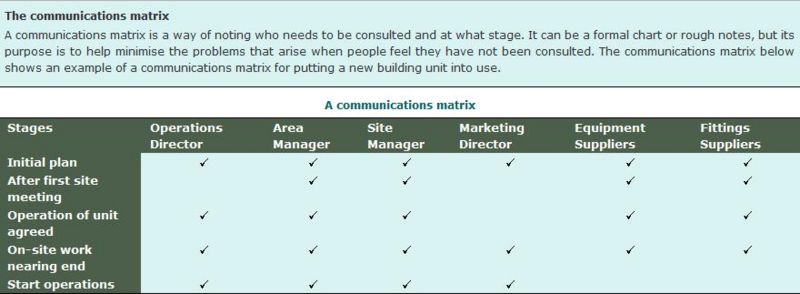What is a project?
A definition
One definition is
‘A project is a one-off, non-repeated activity or set of tasks which achieves clearly stated objectives within a time limit.’
Most managers work on projects, often small or short-term projects, rather than large ones that take several years to complete. Size or length of time do not indicate that one project is more important than another – often small projects pave the way for major improvements to be made. A project is often about creating something new or implementing a major change that can be viewed as a complete event.
What is expected from projects?
- The project may be expected to deliver financial benefits to the organisation.
- In the public sector projects are usually expected to lead to social, economic and political outcomes.
All projects are different. The level of complexity differs and the context in which a project exists will affect it. There is no single right way to manage a project. All projects have customers.
There are three key dimensions to a project:
- budget
- time
- quality
and these have to be balanced to manage a project successfully.
These three dimensions are interlinked and each of the dimensions will probably receive particular attention at different stages in the project. The model is useful in reminding us of the tensions that may arise in attempts to keep each of these dimensions progressing according to plan. Traditional approaches to management of projects have focused on the technical aspects and often paid less attention to the influence of people on the project. People commission and sponsor projects, people are stakeholders in projects and people plan and carry out projects. In managing a project, the leadership, motivation and management of the people involved are as important as using appropriate planning, control and monitoring techniques. Again, there is a balance to be achieved. There will be people who want the project to succeed and people who are antagonistic towards it for some reason – for example, not everyone benefits from a new road, shopping centre or airport. There are also people involved in completing the project. The project team will have a range of different attitudes towards the project and may or may not want it to succeed! It would therefore be useful to draw up a communications matrix in order to see the stages of the project and who needs to be contacted.
Examples of projects
- A project might involve establishing a new product or service, developing an existing product or service or discontinuing a product or closing a service that is no longer required.
- A project might arise from recognition of new needs of customers or service users or from an opportunity that is expected to deliver benefits to the organisation.
- Projects might also arise from a new organisational requirement, for example, as a response to a change in legislation that requires changes in employment systems or in health and safety procedures. In such a case, the project could be investigating the extent of change necessary and reporting recommendations to a decision-making body or the implementation of the change to the point where routine working could be resumed. (The routine work that followed the change would no longer be a project.)

